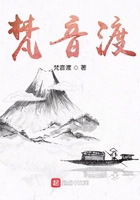A fierce thrill of excitement ran through him as he did so. He announced in an uncertain voice that, to prevent disappointment, he was about to read the masterpieces of a great poet, discovered only recently (for although Andre de Chenier's poems appeared in 1819, no one in Angouleme had so much as heard of him). Everybody interpreted this announcement in one way--it was a shift of Mme. de Bargeton's, meant to save the poet's self-love and to put the audience at ease.
Lucien began with Le Malade, and the poem was received with a murmur of applause; but he followed it with L'Aveugle, which proved too great a strain upon the average intellect. None but artists or those endowed with the artistic temperament can understand and sympathize with him in the diabolical torture of that reading. If poetry is to be rendered by the voice, and if the listener is to grasp all that it means, the most devout attention is essential; there should be an intimate alliance between the reader and his audience, or swift and subtle communication of the poet's thought and feeling becomes impossible.
Here this close sympathy was lacking, and Lucien in consequence was in the position of an angel who should endeavor to sing of heaven amid the chucklings of hell. An intelligent man in the sphere most stimulating to his faculties can see in every direction, like a snail; he has the keen scent of a dog, the ears of a mole; he can hear, and feel, and see all that is going on around him. A musician or a poet knows at once whether his audience is listening in admiration or fails to follow him, and feels it as the plant that revives or droops under favorable or unfavorable conditions. The men who had come with their wives had fallen to discussing their own affairs; by the acoustic law before mentioned, every murmur rang in Lucien's ear; he saw all the gaps caused by the spasmodic workings of jaws sympathetically affected, the teeth that seemed to grin defiance at him.
When, like the dove in the deluge, he looked round for any spot on which his eyes might rest, he saw nothing but rows of impatient faces.
Their owners clearly were waiting for him to make an end; they had come together to discuss questions of practical interest. With the exceptions of Laure de Rastignac, the Bishop, and two or three of the young men, they one and all looked bored. As a matter of fact, those who understand poetry strive to develop the germs of another poetry, quickened within them by the poet's poetry; but this glacial audience, so far from attaining to the spirit of the poet, did not even listen to the letter.
Lucien felt profoundly discouraged; he was damp with chilly perspiration; a glowing glance from Louise, to whom he turned, gave him courage to persevere to the end, but this poet's heart was bleeding from countless wounds.
"Do you find this very amusing, Fifine?" inquired the wizened Lili, who perhaps had expected some kind of gymnastics.
"Don't ask me what I think, dear; I cannot keep my eyes open when any one begins to read aloud."
"I hope that Nais will not give us poetry often in the evenings," said Francis. "If I am obliged to attend while somebody reads aloud after dinner, it upsets my digestion."
"Poor dearie," whispered Zephirine, "take a glass of eau sucree."
"It was very well declaimed," said Alexandre, "but I like whist better myself."
After this dictum, which passed muster as a joke from the play on the word "whist," several card-players were of the opinion that the reader's voice needed a rest, and on this pretext one or two couples slipped away into the card-room. But Louise, and the Bishop, and pretty Laure de Rastignac besought Lucien to continue, and this time he caught the attention of his audience with Chenier's spirited reactionary Iambes. Several persons, carried away by his impassioned delivery, applauded the reading without understanding the sense.
People of this sort are impressed by vociferation, as a coarse palate is ticked by strong spirits.
During the interval, as they partook of ices, Zephirine despatched Francis to examine the volume, and informed her neighbor Amelie that the poetry was in print.
Amelie brightened visibly.
"Why, that is easily explained," said she. "M. de Rubempre works for a printer. It is as if a pretty woman should make her own dresses," she added, looking at Lolotte.
"He printed his poetry himself!" said the women among themselves.
"Then, why does he call himself M. de Rubempre?" inquired Jacques. "If a noble takes a handicraft, he ought to lay his name aside."
"So he did as a matter of fact," said Zizine, "but his name was plebeian, and he took his mother's name, which is noble."
"Well, if his verses are printed, we can read them for ourselves," said Astolphe.
This piece of stupidity complicated the question, until Sixte du Chatelet condescended to inform these unlettered folk that the prefatory announcement was no oratorical flourish, but a statement of fact, and added that the poems had been written by a Royalist brother of Marie-Joseph Chenier, the Revolutionary leader. All Angouleme, except Mme. de Rastignac and her two daughters and the Bishop, who had really felt the grandeur of the poetry, were mystified, and took offence at the hoax. There was a smothered murmur, but Lucien did not heed it. The intoxication of the poetry was upon him; he was far away from the hateful world, striving to render in speech the music that filled his soul, seeing the faces about him through a cloudy haze. He read the sombre Elegy on the Suicide, lines in the taste of a by-gone day, pervaded by sublime melancholy; then he turned to the page where the line occurs, "Thy songs are sweet, I love to say them over," and ended with the delicate idyll Neere.















